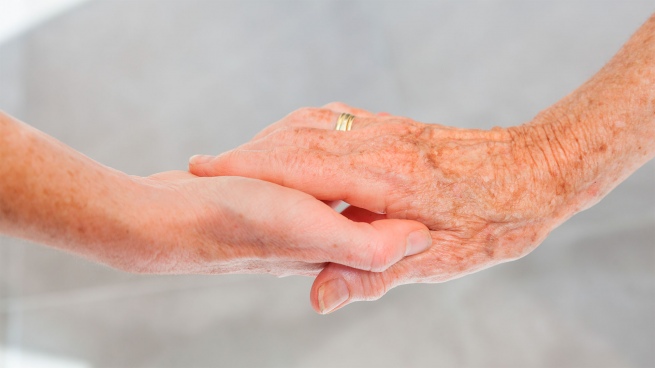Women double men in the daily hours dedicated to caring for household members and exceed their peers by 1:30 hours in the time spent per day on housework, as revealed by the first National Survey on Time Use (ENUT 2021) published this Tuesday by the National Institute of Statistics and Censuses (Indec).
The work published by the national body sought to collect data on how Argentines distribute their time during the day for different daily activities, where the results showed marked differences between genders with respect to unpaid work, that is, unpaid domestic work. , care work for household members and support work for other households (family and non-family), for the community and volunteer.
The data obtained arose from surveying 28,520 private homes from all over the country, where Greater Buenos Aires region had 6,010 interviewees; Whose, 3,180; Northeast, 2,480; Northwest, 4,150; Pampas, 8,820 Y Patagonia, 3,880.

In the survey, whose results were shown in 74 pages, it was revealed that 92.9% of people aged 14 and over carry out some activity of a productive nature, 46.4% participate in work in the occupation and 83.8% carry out unpaid work tasks, where on average 5:18 hours per day are spent on these tasks.
In terms of gender, the differences observed in the use of time between men and women are maintained throughout life: in all age groups, men participate in a greater proportion and dedicate more hours to work in the labor market than women. women, while they outnumber men in unpaid work.
In work in the occupation, that is, in activities linked to the labor market, the percentage of men who do it (55.9%) exceeds that of women (37.7%).
For their part, women participate in unpaid work – which is not for profit – in a greater proportion: 91.7% do domestic, care or support work for other households or volunteer, while, in the case of of the men, 75.1% do so.
#DatoINDEC
Among the people who do unpaid work, women spend 6:31 hours per day and men spend 3:40 on these tasks https://t.co/DdzAH8nYWy pic.twitter.com/HMoWpFCOZi— INDEC Argentina (@INDECArgentina) October 4, 2022
In addition, the participation of women in the different forms of unpaid work is always greater than that of men, both in domestic work (90.0% compared to 69.1%), and in caring for family members. home (31.4% vs. 20.3%) and support for other homes, the community, and volunteers (9.3% vs. 6.1%).
In this connection, it was also observed that the workload deepened this difference between men and women in care tasks, since while men spend 3:30 hours per day, women almost double that time with 6:07 hours on average. .
In the case of domestic work, there is also a time difference of almost 1:30 hours between women (4:06 hours) and men (2:38 hours), while in support work for other households, for the community and voluntary, there are no significant variations in time by sex (3:58 hours for women and 3:41 for men).
As people age, their participation in domestic work increases and so does the amount of time that those who participate dedicate to it.
#DatoINDEC
Regardless of whether they are engaged in the labor market or not, women spend more time on unpaid work than men https://t.co/DdzAH8nYWy pic.twitter.com/a5YnAyy3sX— INDEC Argentina (@INDECArgentina) October 4, 2022
For example, 70.4% of people between the ages of 14 and 29 perform unpaid domestic work, while for people over 65 the participation rate rises to 88.8%.
In turn, in young people, the time allocated to these activities is 2:31 hours per day, while in adults it is 4:22 hours.
As explained by Indec, the importance of this study lies in having data on the use of time to achieve goal 5.4 of the United Nations Sustainable Development Goal 5, which requires recognizing, reducing and redistributing unpaid care work. as a condition for achieving gender equality.
#DatoINDEC
Greater Buenos Aires is the region with the greatest time gap between women and men at work in the occupation; and Whose, the youngest. Regarding unpaid work, the greatest difference is registered in the Northwest; and the smallest, in Patagonia https://t.co/DdzAH8nYWy pic.twitter.com/an4DSncCzS— INDEC Argentina (@INDECArgentina) October 4, 2022
“At the end of 2021, when we were going through the final phase of the health emergency ordered by the coronavirus pandemic, we carried out this challenging task. With an innovative conceptual design, ENUT 2021 also expanded its geographical scope: it is the first survey on the use of time with national coverage in which the activities diary is applied”, highlighted the director of Indec, Marco Lavagna in the study.
“With the publication of the ENUT 2021 we have taken a new leap in quality in this sense because -I am convinced-, more than a point of arrival, the expansion of the statistical service must be a permanent construction process that accompanies the social dynamics and contributes valuable knowledge about Argentina”, highlighted Lavagna.
There is no gender difference in the use of electronic devices
90.4% of the population over 14 years of age and over use some electronic device and in this there is no significant difference between men and women, according to the National Survey of Time Use (ENUT 2021) released this Tuesday by the Indec .
“When considering the use of means of communication (cell phone, computer, tablet, TV, radio, etc.), 90.4% of the population over 14 years of age and over use these devices, and no significant difference is observed between men (91.5%) and women (89.4%)”, specified the report that set out to collect data on how people distribute their time during the day and reflect in detail the passing of our daily lives.
The work with the final results of the survey carried out between October and December 2021 in 28,520 private homes indicated that people aged 65 and over have the highest rates of use of these media (95.8%), and those aged 30 to 64 years are the ones with the lowest percentage (87.7%).
“This last group is also the one that spends the least time on these activities: on average, 4:21 hours a day, when young people and the elderly spend 1 hour more, about 5:20 hours a day,” said the survey. in the chapter entitled “Personal activities”.
In the same section, it was reported that young women, between 14 and 29 years old, participate in educational activities in a greater proportion than their male peers (38.2% compared to 33.3%), and with greater time commitment (5: 57 hours vs. 5:34 hours).
As is the case with educational activities, young people between the ages of 14 and 29 have the highest percentage of participation in coexistence and recreation activities (61.4%).
However, “in all the age groups under analysis, the percentage of participation is close to 50% in this type of activity, which includes gatherings with family or friends, practicing sports and physical exercise, attendance at cultural, sports or entertainment events, among others”.
In another order, the ENUT 2021 showed that 4 out of 10 households in the country have a population that requires care, defined as those
who need assistance, accompaniment, support or care to carry out the basic activities of daily living,
The survey indicated that almost all (98.6%) of the households with a population that needs care resolve it “through the unpaid work of a person from the household itself or of relatives residing in other households.”
“Those who can contract domestic and care services in the market (through their remuneration) represent less than 1 in 10 of the households that demand care (8.9%). The State and the community present a very low incidence in the provision of care services”, pointed out the work of the Indec.


















